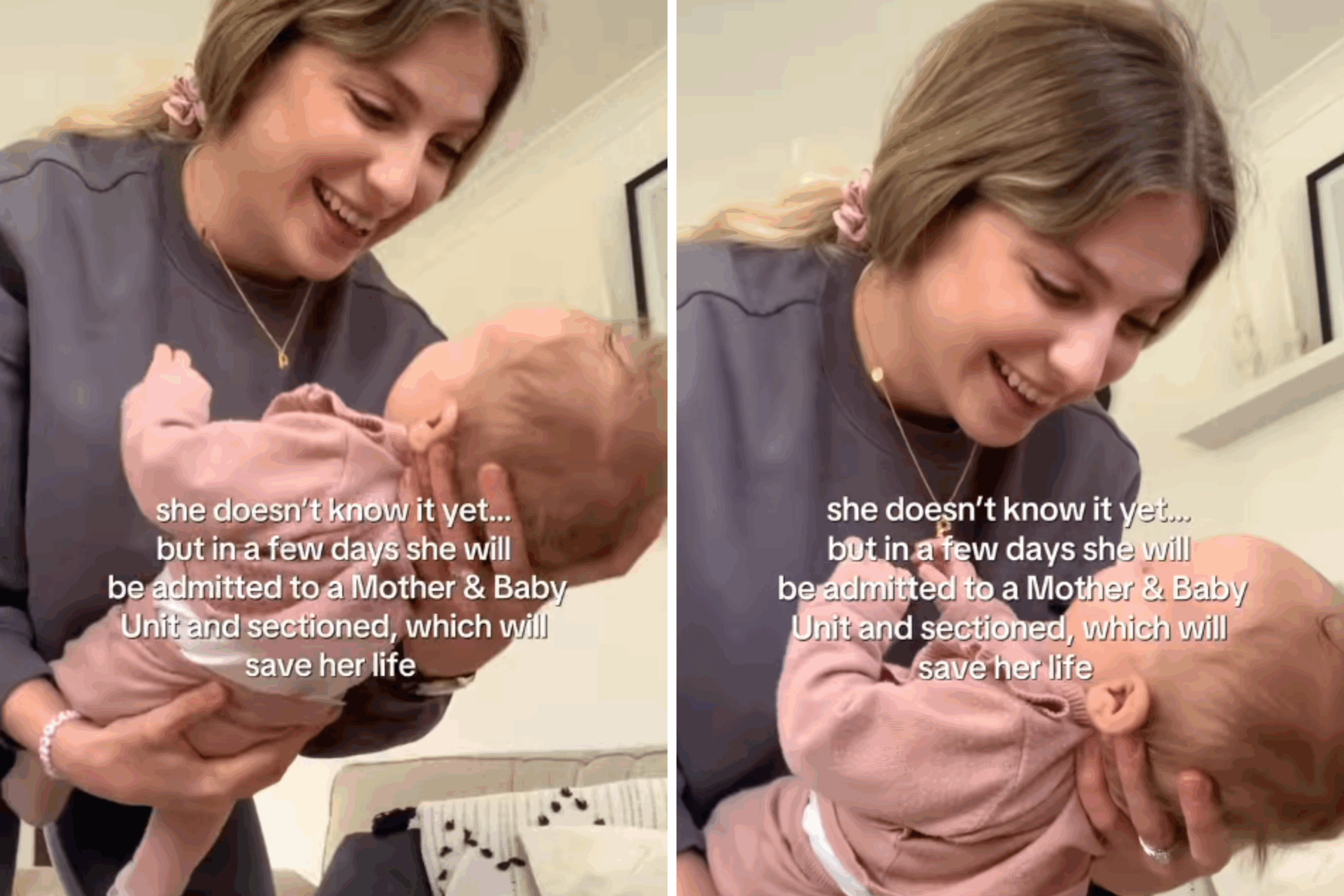URGENT UPDATE: A U.K. mother, Jade Lloyd, has shared her harrowing experience of battling severe postnatal depression, which escalated to psychosis just days after she posted a joyful video with her newborn daughter. This shocking revelation highlights the critical need for mental health support for new mothers.
Lloyd, 31, uploaded a heartwarming Instagram reel of her playing with her baby, blissfully unaware that her mental state was deteriorating rapidly. In an interview with Newsweek, she disclosed that her mental struggles began shortly after giving birth. Despite her efforts to communicate her distress during a six-week checkup, her concerns were dismissed by her healthcare provider.
“It got progressively worse, which then started to turn into suicidal thoughts,” Lloyd stated. Her diagnosis of postnatal depression came too late, and the pressure to “put on a front” exacerbated her condition. “I was trying to hold it together until my brain couldn’t handle it anymore, and it turned into psychosis,” she explained.
Clinicians later informed Lloyd that severe sleep deprivation—she managed only 10 hours of sleep over a week—contributed significantly to her acute psychosis. As a result, she was sectioned under the U.K.’s Mental Health Act and admitted to a specialized Mother and Baby Unit, where mothers receive psychiatric care alongside their infants.
“Initially, it felt like a prison, and when I was sectioned, it meant I was unable to leave,” she said. However, being with her daughter was crucial for her recovery, as she often battled intrusive thoughts of harm. “I couldn’t imagine what it would have been like if I wasn’t able to be with her,” Lloyd remarked.
During her month-long stay, despite facing numerous challenges, she praised the staff for their compassionate care and support. “They listened, cared for myself and my daughter, and gave me space to heal. I will be forever grateful for them,” she expressed.
After her release, Lloyd faced ongoing battles with depression, which made daily activities feel insurmountable. With driving restrictions in place for three months, she experienced profound isolation in her small town. Thankfully, her friends and family stepped in to offer support and encouragement.
Today, Lloyd reports being in “the best place” she has ever been. She actively volunteers at the Mother and Baby Unit, providing care and support to other mothers, which she finds both healing and rewarding. “The response has been positive, and I hope to grow this and go on to do more advocacy work to help better maternal care for mental health,” she stated.
In her message to mothers grappling with similar issues, Lloyd reassured, “Whether you’ve just given birth, or you are three years into your motherhood journey, you are doing amazing.” She urged those struggling to recognize their worth, saying, “Even if you’re scraping by every single day, know that you are enough for your baby.” Lloyd emphasized, “There is light out there, and if you are in the darkness, there is a way out. It takes time and work, but you’ve got this.”
This powerful story sheds light on the urgent need for improved mental health resources for new mothers, aiming to foster awareness and support for those in similar situations. As more women share their experiences, the conversation around maternal mental health continues to grow, underscoring the importance of empathy and understanding in these challenging times.
